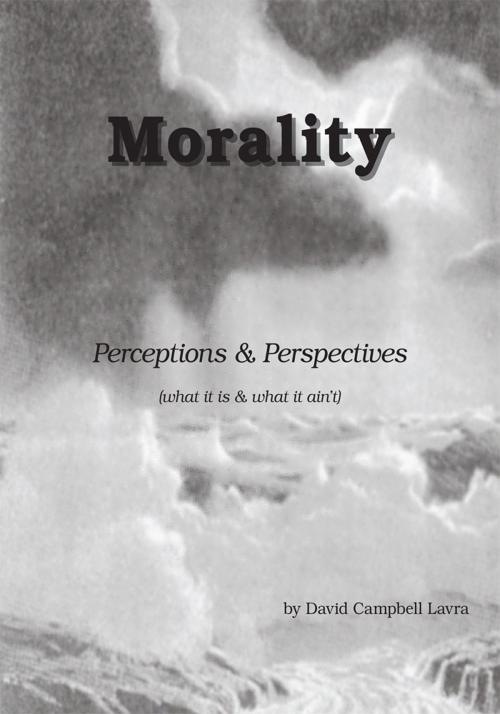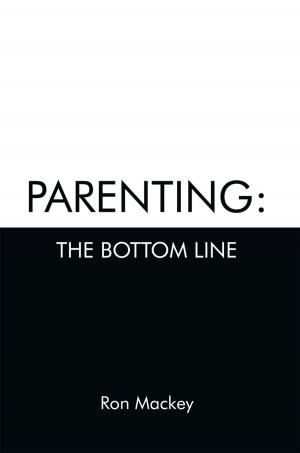Morality
Perceptions & Perspectives
Nonfiction, Science & Nature, Nature, Environment, Environmental Conservation & Protection| Author: | David Campbell Lavra | ISBN: | 9781466957404 |
| Publisher: | Trafford Publishing | Publication: | May 28, 2007 |
| Imprint: | Trafford Publishing | Language: | English |
| Author: | David Campbell Lavra |
| ISBN: | 9781466957404 |
| Publisher: | Trafford Publishing |
| Publication: | May 28, 2007 |
| Imprint: | Trafford Publishing |
| Language: | English |
The reader is advised to read the chapters skipping over the items in the boxes and go back to read them at the end of the chapter.
Morality was written to help empower a people drowning in what Michael Lerner called "surplus powerlessness". (Politics of Meaning, 1997). The first objective of Morality is to contrast different beliefs about the U.S.A. with actual behavior. The second objective is to elucidate the alternatives and to encourage new directions, to invite behavior change.
Book 1 progresses through the ugly realities of our current situation and examines what we can have based on what also currently exists. Few facts or events are referenced because these have been documented by numerous other sources, and duplication adds little to the purpose. The books are a blend of personal experiences, observations and analyses. Book 2 is a convergence of ecological and psycho-sociological sanity. Important concepts and connections are repeated throughout Book 1 and Book 2 for greater impact. Book 1 is a wake-up call; Book 2 is a design for sanity.
The author uses public information and events to explore and define the topic of morality. Throughout the books the author describes morality and health. In Book 1 both political and religious behaviors are stripped to their essence. The alarming growth of both religious fundamentalism and cults are challenged in Book 1. Economics is stripped of its fallacies, and a practical alternative is presented in contrast.
Book 2 describes a socio-political structure to bring about constructive change and reorganize how we live. A model is offered for living morally, peacefully and cooperatively. The book offers a model for living ecological sanity and social compatibility. These two books compliment one another.
Note: For anti-political people the author suggests reading Chapter Two of Book 2 first. For all readers the author suggests skipping the content in the boxes and go back to read them and review the chapters.
On page 19 the footnote should read "NAFTA" and not "CAFTA".
The reader is advised to read the chapters skipping over the items in the boxes and go back to read them at the end of the chapter.
Morality was written to help empower a people drowning in what Michael Lerner called "surplus powerlessness". (Politics of Meaning, 1997). The first objective of Morality is to contrast different beliefs about the U.S.A. with actual behavior. The second objective is to elucidate the alternatives and to encourage new directions, to invite behavior change.
Book 1 progresses through the ugly realities of our current situation and examines what we can have based on what also currently exists. Few facts or events are referenced because these have been documented by numerous other sources, and duplication adds little to the purpose. The books are a blend of personal experiences, observations and analyses. Book 2 is a convergence of ecological and psycho-sociological sanity. Important concepts and connections are repeated throughout Book 1 and Book 2 for greater impact. Book 1 is a wake-up call; Book 2 is a design for sanity.
The author uses public information and events to explore and define the topic of morality. Throughout the books the author describes morality and health. In Book 1 both political and religious behaviors are stripped to their essence. The alarming growth of both religious fundamentalism and cults are challenged in Book 1. Economics is stripped of its fallacies, and a practical alternative is presented in contrast.
Book 2 describes a socio-political structure to bring about constructive change and reorganize how we live. A model is offered for living morally, peacefully and cooperatively. The book offers a model for living ecological sanity and social compatibility. These two books compliment one another.
Note: For anti-political people the author suggests reading Chapter Two of Book 2 first. For all readers the author suggests skipping the content in the boxes and go back to read them and review the chapters.
On page 19 the footnote should read "NAFTA" and not "CAFTA".















